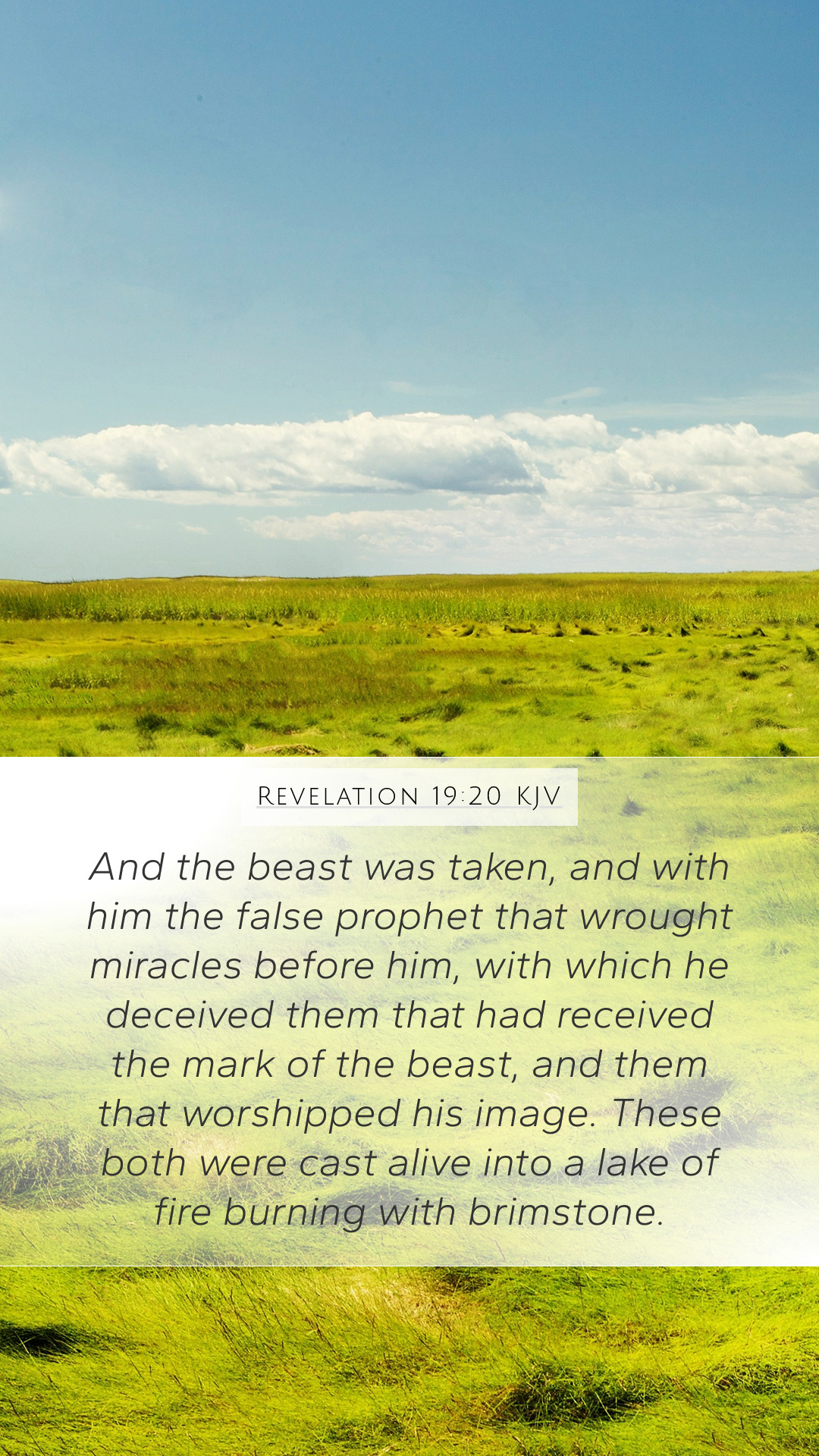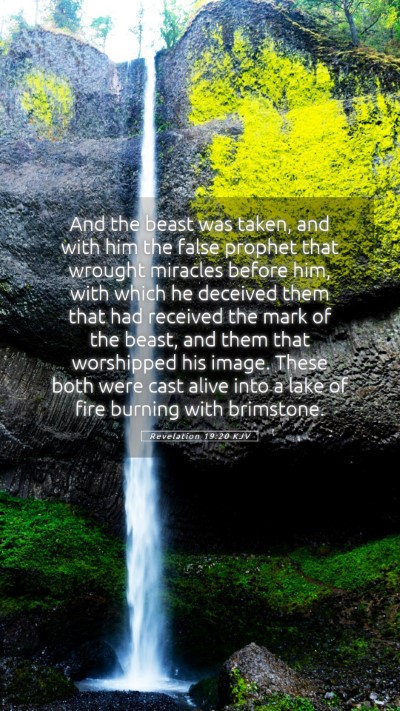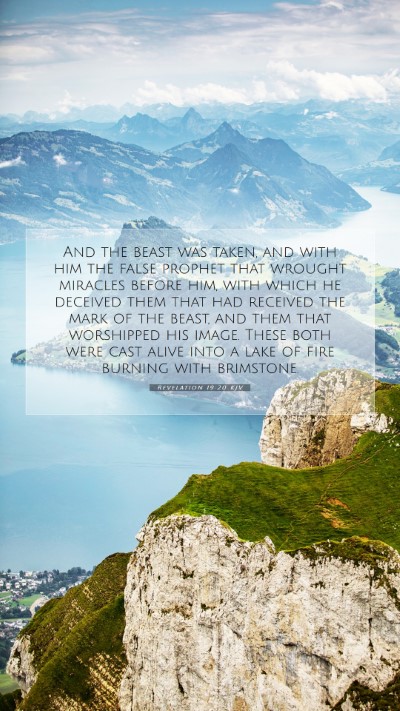Bible Verse Meaning: Revelation 19:20
Scripture Reference: Revelation 19:20 - "And the beast was captured, and with it the false prophet who had performed the signs in its presence, by which he deceived those who had received the mark of the beast and those who worshipped its image. These two were thrown alive into the lake of fire that burns with sulfur."
Overview
The verse Revelation 19:20 speaks of the defeat of the beast and the false prophet, illustrating the ultimate triumph of God over evil. This passage serves as a pivotal moment in the Book of Revelation, showcasing God's power and the fate of those who oppose Him.
Interpretation
This passage invites deep Bible verse interpretation and understanding, revealing critical themes of judgment, deception, and divine authority. The beast symbolizes oppressive political power, while the false prophet represents religious deception.
Insights from Commentaries
-
Matthew Henry:
Henry emphasizes the certainty of divine judgment against the forces of evil. He notes that the beast and false prophet, as chief deceivers, face the ultimate consequence—being thrown into the lake of fire. This act symbolizes total and irrevocable punishment.
-
Albert Barnes:
Barnes focuses on the concept of deception posed by the false prophet, mentioning how the miraculous signs led many to follow the beast. His commentary outlines the importance of discernment in faith and warns of the dangers of being seduced by false teachings.
-
Adam Clarke:
Clarke reflects on the apocalyptic imagery, explaining that the 'lake of fire' represents the final destiny of those who reject God's authority. He elaborates on the symbolism of sulfur, often associated with divine wrath and purification, illustrating the severe consequences of rebellion against God.
Thematic Elements
This passage can be analyzed through several thematic lenses:
- Divine Judgment: The ultimate punishment for the beast and false prophet emphasizes the certainty of God's judgment against evil.
- Deception: It highlights the reality of being misled by falsehoods; a reminder to remain vigilant in our faith.
- Victory of Good over Evil: This verse reassures believers that God's kingdom prevails in the end.
Application of Revelation 19:20
In applying this verse to daily life, consider the following:
- Discernment in Faith: Seek to understand and verify teachings against Scripture to avoid deception.
- Hope in Divine Justice: Trust in God’s ultimate justice even in the face of apparent evil.
- Encouragement: Find encouragement in knowing that God overcomes all evil and the faithful will prevail.
Related Cross References
- Revelation 20:10: The fate of the devil, reinforcing judgment against evil.
- Matthew 25:41: Jesus speaks of eternal punishment prepared for the devil and his angels.
- 2 Thessalonians 2:8: The revelation of lawlessness leading to destruction and the conquering of the wicked.
Conclusion
Revelation 19:20 illustrates a crucial moment of divine judgment and victory over the forces opposing God. It highlights the importance of discernment, the consequences of deception, and reassures the faithful about God's ultimate authority. Understanding this verse enriches our Bible study insights and deepens our Scripture analysis.


